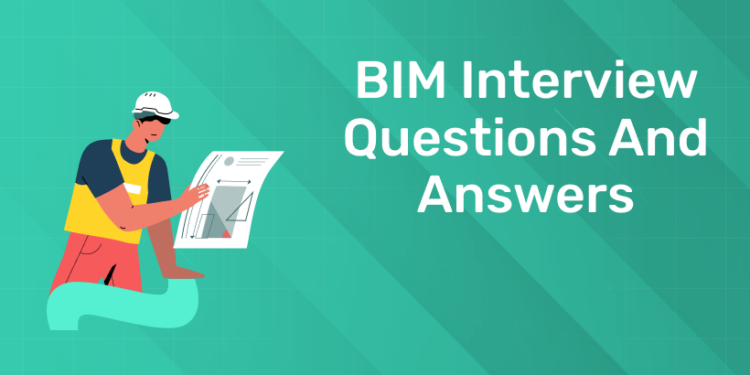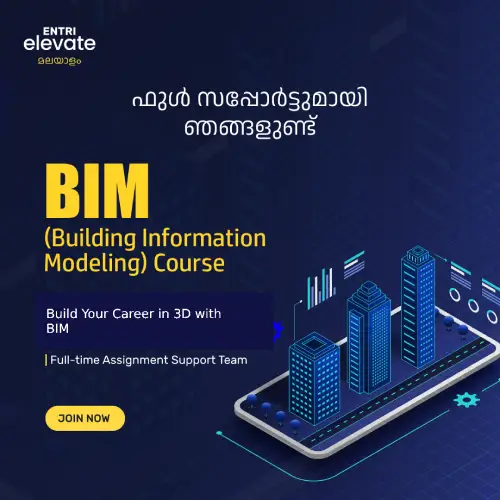Table of Contents
Building Information Modeling, or BIM, has transformed the architecture, engineering, and construction (AEC) industry. It’s no longer just a buzzword but a critical skill that professionals need to master to stay competitive. As the demand for BIM expertise continues to grow, companies are looking for individuals who not only understand the concepts but can also apply them effectively in real-world scenarios.
This blog serves as your ultimate guide to preparing for BIM interviews. Whether you’re an experienced professional or a fresher stepping into the world of BIM, you’ll find this resource invaluable. We’ll cover common questions, tips for crafting thoughtful responses, and strategies to ace your interview. By the end of this guide, you’ll feel confident and well-prepared to tackle any BIM-related query.
The ultimate BIM Manager course is here! Join Entri today
BIM Interview: Latest Questions
When preparing for a BIM interview, understanding the types of questions you may face is crucial. Below are categorized questions to help you anticipate and practice.
1. Basic Questions on BIM Concepts
- What is BIM, and why is it important? Explain BIM as a process that integrates design and construction data into a digital model, emphasizing its role in improving collaboration, reducing errors, and streamlining project workflows.
- What are the key elements of a BIM model? Discuss aspects like geometry, spatial relationships, geographic information, and quantities and properties of building components.
- Can you differentiate between 3D, 4D, and 5D BIM? Elaborate on 3D BIM for modeling, 4D for scheduling, and 5D for cost estimation, highlighting their interconnectivity.
2. Technical Questions
- Which BIM tools are you proficient in? Be specific about tools like Autodesk Revit, Navisworks, ArchiCAD, or Bentley Systems. Provide examples of how you’ve used these tools in past projects.
- How do you ensure model accuracy and quality? Discuss techniques like clash detection, adherence to project standards, and regular audits.
- What’s your experience with clash detection and coordination? Share your process for identifying and resolving conflicts between different disciplines using tools like Navisworks or Solibri.
3. Project Management and Collaboration
- Describe your role in a BIM-integrated project. Use specific examples to demonstrate how you contributed to project success.
- How do you manage collaboration between different disciplines? Explain the use of a Common Data Environment (CDE) and strategies for ensuring effective communication.
- What’s your approach to implementing BIM standards in a project? Highlight your knowledge of ISO 19650 or similar standards and how you ensure compliance.
4. Problem-Solving Scenarios
- How would you handle a situation where stakeholders are resistant to BIM adoption? Discuss the importance of education, demonstrating ROI, and addressing concerns through workshops or pilot projects.
- What steps would you take if a model from a subcontractor doesn’t meet project standards? Share your approach to identifying issues, communicating effectively, and working towards a resolution.
5. Future of BIM and Industry Trends
- What do you think is the future of BIM? Mention advancements like AI integration, cloud collaboration, and digital twins, showcasing your awareness of industry trends.
- How do you stay updated on BIM developments? Reference online courses, webinars, industry blogs, and professional communities.
BIM Interview: Tips for Answering
To stand out in a BIM interview, it’s not just about knowing the answers—it’s about how you deliver them. Here are some tips:
1. Be Specific and Use Examples
Whenever possible, tie your answers to real-world experiences. For instance, if asked about clash detection, describe a project where you successfully resolved major clashes and how it impacted the project timeline.
2. Showcase Your Problem-Solving Skills
Employers value candidates who can think on their feet. For scenario-based questions, structure your answers using the STAR method (Situation, Task, Action, Result) to articulate your approach clearly.
3. Understand the Company’s BIM Workflow
Research the company’s BIM practices and tailor your responses to align with their methodology. For example, if they heavily use Revit, emphasize your expertise with that tool.
4. Highlight Soft Skills
BIM is as much about collaboration as it is about technical skills. Showcase your communication abilities, teamwork, and adaptability during the interview.
5. Stay Honest
If you’re unfamiliar with a specific tool or concept, acknowledge it but express your willingness to learn. Honesty builds trust and shows you’re open to growth.
The ultimate BIM Manager course is here! Join Entri today
BIM Interview: Conclusion
Mastering BIM interview questions requires a blend of technical knowledge, practical experience, and effective communication. As BIM continues to revolutionize the AEC industry, professionals who can confidently navigate these topics will find themselves in high demand.
If you’re looking to deepen your BIM knowledge or start your journey in this exciting field, Entri offers a comprehensive course tailored to BIM professionals. With practical lessons, expert guidance, and real-world applications, it’s the perfect resource to sharpen your skills and prepare for your next career opportunity. Explore the course today and take a step closer to mastering BIM.
|
Engineering Upskilling Courses
|
| MEP Course |
| BIM Course |
| Quantity Surveyor Course |
| Structural Design Course |
| MEP QS Course |











